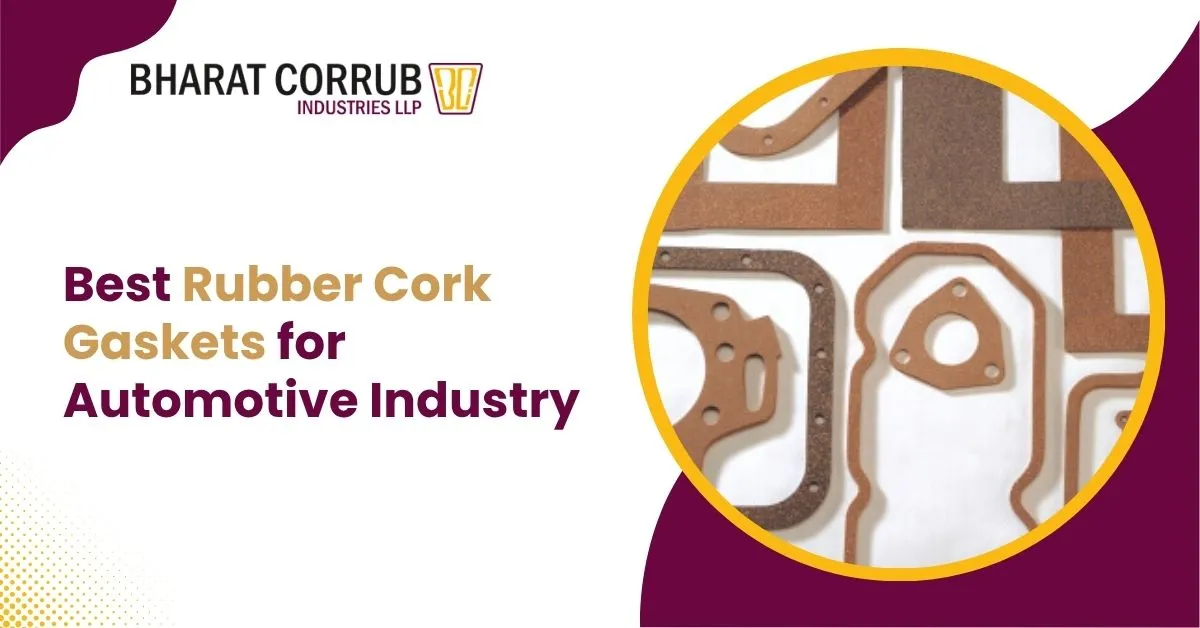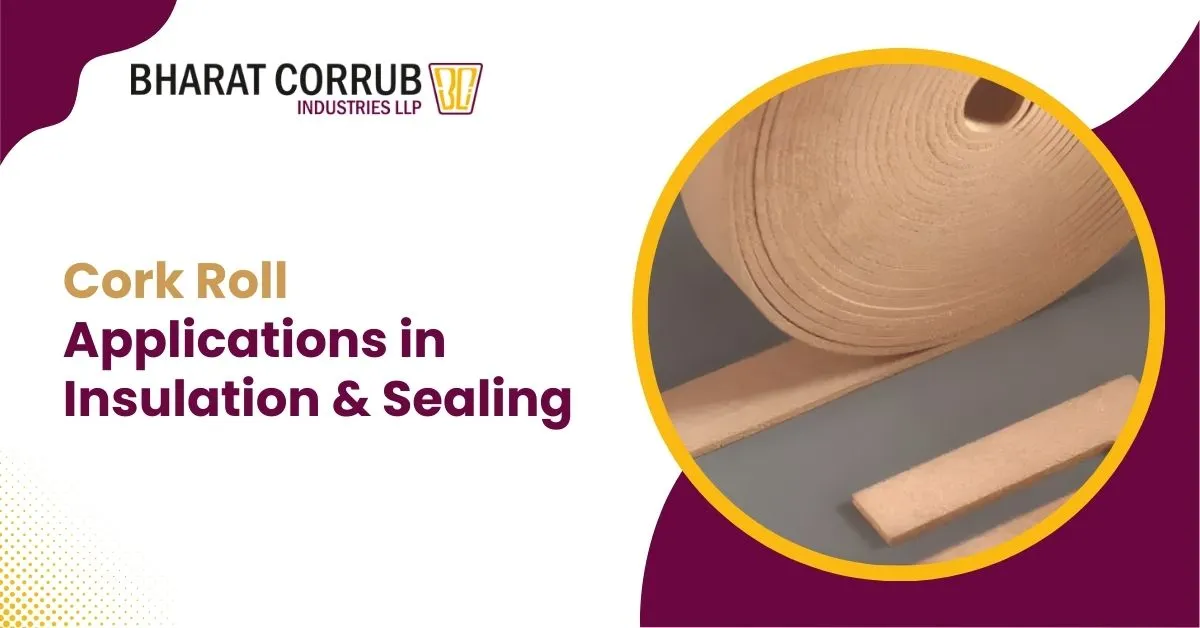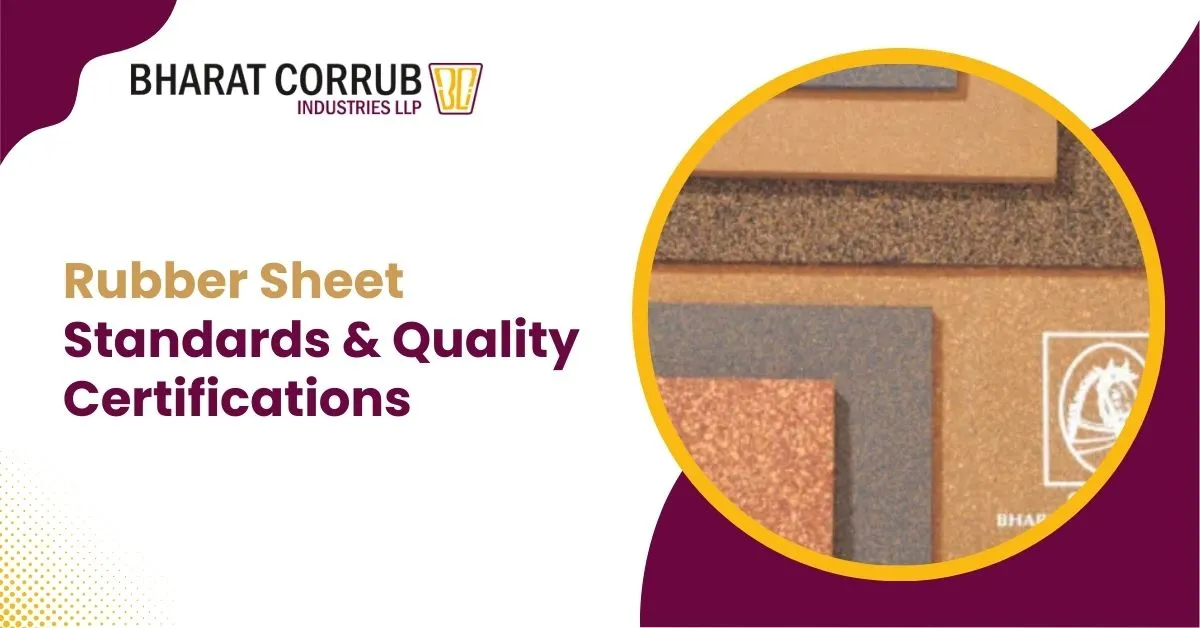In the hustle of the automotive manufacturing world, the difference between a lasting seal and a leak-prone joint often comes down to the right gasket. If you’re sourcing components for engine covers, fuel systems, transmission housings or other critical automotive assemblies, choosing the right material matters. That’s where rubber cork gaskets shine: they bring together the natural compressibility of cork and the durability of rubber to deliver a high-performance sealing solution designed for automotive challenges.
Whether you’re a vehicle OEM or a parts supplier, this blog takes you through why rubber cork gaskets are increasingly being adopted, what sets the best products apart, and how to select the right one for your automotive application.
What Are Rubber Cork Gaskets?
Rubber cork gaskets are composite sealing materials made by blending granulated natural cork with elastomeric rubber binders (such as nitrile, neoprene or similar) to form sheets or cut gaskets. The cork component offers compressibility and conformability to surface irregularities; the rubber portion adds resilience, chemical resistance (especially to oils and fuels) and durability.
In automotive environments where surfaces are often uneven, bolt loads vary, and exposure to oil, fuel and vibration is constant, this hybrid material provides a compelling sealing solution.
Why Choose Rubber Cork Gaskets in Automotive Applications?
1. Excellent Surface Conformability
Automotive engine covers, oil pans, valve covers and other housings rarely have perfectly flat flanges. Rubber cork gaskets adapt to microscopic imperfections, filling gaps and creating a reliable seal under moderate bolt loads.
2. Outstanding Oil & Fuel Resistance
Standard cork alone may degrade under exposure to lubricants or fuels, but rubber-bonded cork formulations are engineered to resist oils, fuels, hydrocarbons and hydraulic fluids.
3. Effective Vibration & Noise Control
Cork’s natural cushioning plus rubber’s rebound help dampen vibration and reduce noise transmission — a welcome benefit in automotive cabins and engine bays.
4. Cost-Effective Often vs High-End Materials
While premium composite gaskets (metal-jacketed, full elastomer, multi-layer steel) have their place, for many sealing points in automotive assemblies rubber cork offers a balanced performance-to-cost ratio.
5. Sustainable Edge
Cork is a naturally renewable material; when combined with rubber binders it supports more eco-friendly manufacturing choices — increasingly relevant in today’s automotive supply chain.
Automotive Applications for Rubber Cork Gaskets
- Oil Pans & Valve Covers: These housings require leakage prevention from oil and crankcase gases; rubber cork gaskets are common in these applications.
- Fuel Pump & Gearbox Covers: Exposure to fuels or hydraulic fluids demands gasket materials that won’t swell or degrade — rubber cork formulations are used.
- Transmission & Differential Covers: These components often experience vibration and moderate temperatures, making conformable gaskets beneficial.
- Engine Cover Seals & Access Plates: Where the flange surfaces may be irregular and bolt forces lower, rubber cork gaskets can be ideal due to compressibility.
What to Look for When Selecting Rubber Cork Gaskets
When you’re evaluating gasket suppliers or materials for automotive use, focus on:
- Binder type & fluid compatibility: Ensure the rubber binder (nitrile/NBR, neoprene, etc.) is compatible with the specific fluids (oil, fuel, transmission fluid) in your application.
- Thickness & sheet size: Gasket material should match the flange design, bolt load, and compression conditions. Some suppliers offer custom sizes.
- Temperature & mechanical performance: Check data sheets for service temperature, compression set, recovery and dimensional stability under load.
- Vibration & noise specs: If NVH (noise, vibration harshness) is a concern, review material’s damping performance or cushioning properties.
- Certifications & quality assurance: Choose suppliers with traceable quality systems, material data sheets, and automotive supply credentials.





